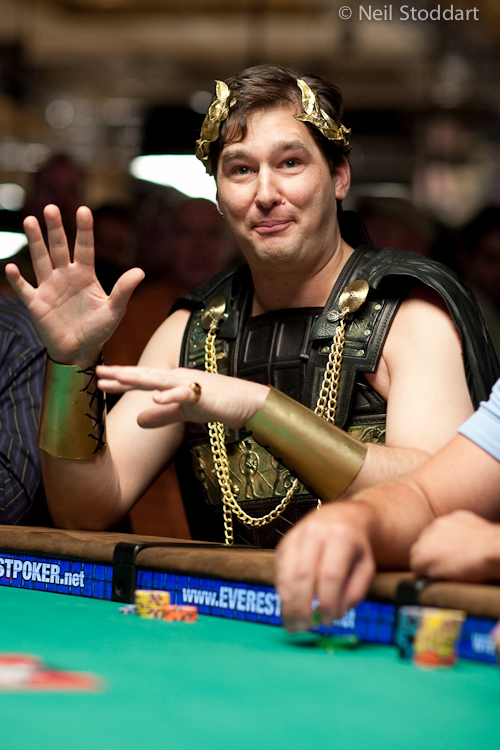August 13 2012, by Gary Wise
THE ALL-TIME MONEY LIST AND WHY GPI MATTERS
Money has always been a way of keeping score in poker, the ultimate measuring stick in a game where each dollar is both a tally and ammunition:
All-time leaders, live tournament winnings:
| Rank | Player | Winnings | GPI |
| 1 | Antonio Esfandiari | $23,270,636 | 106 |
| 2 | Erik Seidel | $16,968,220 | 5 |
| 3 | Phil Ivey | $16,694,534 | 61 |
| 4 | Sam Trickett | $16,471,099 | 47 |
| 5 | Daniel Negreanu | $16,252,686 | 51 |
| 6 | Phil Hellmuth | $16,119,301 | 39 |
| 7 | Michael Mizrachi | $14,074,765 | 18 |
| 8 | John Juanda | $12,458,281 | 136 |
| 9 | Jamie Gold | $12,245,468 | – |
| 10 | Joe Hachem | $11,742,845 | – |
On this list, we have the ten most-successful live tournament poker players of all time, at least as winnings go. We don’t know how much history’s winners have spent accumulating their winnings. While the efforts of organizations like the World Series of Poker to track entries go a long way towards determining ROI (a truer test of success), we really can’t know aside from those rare exceptions (even WSOP only started making entry lists available in 2010), so the above is what we have to go on. That and ranking systems like GPI.
Looking at that list, we have three guys (Esfandiari, Trickett, Hellmuth) whose winnings were artificially enhanced by The Big One for One Drop (I loved the tournament, but let’s face it, winning it doesn’t put Esfandiari in the GOAT argument) and two (Gold, Hachem) for whom the world championship accounts for more than half their winnings. Seidel, Ivey, Negreanu and Juanda have all reaped the recent benefits of Super High-Roller events, leaving Mizrachi as the only guy who built his total entirely off major multi-table tournaments of more than 50 players (and yes, that remarkable fact will make him the focus of a future feature). As good as most of these guys are, for the majority of them, their place on this list is in part a case of right place, right time than a true testament to skill, or at least, skill above and beyond all others. If you recognize that, the  question becomes how that matters.
question becomes how that matters.
Everyone reading this…hell, every person who has played a hand of poker, has endeavored to get better, and we follow the professional ranks because of the respect we have for the guys who can do what we can’t, namely play at a level we can’t or at least one we haven’t achieved. Sure, there’s also the element there of living vicariously through those who make the most money, but if you’re on this website, you’re more than just a money-monger; you’re a fan of the game, or at least an interested observer looking for some understanding of who the most successful players are. Not who the best were, or who the most consistently successful have been over a fifteen-year period that started in the poker equivalent of the stone age; you want to know who, right now, are the most dangerous, nasty, hardcore tournament players in the world. That’s what GPI is for.
To figure out that kind of present-day success, you need big tournament scores against big tournament field with consistency and a recency bias. The reason I liked the concept of GPI from inception (yes, before I was doing content for this site) is because it did a better job of encompassing all of that.
Money as a basic scorekeeping device is fine, but it doesn’t tell us anything anymore. The joke goes that that list will be toppled when Ivey or some billionaire wins a one-person $100,000,000 buy-in tournament, and as silly as that may be, we’re getting closer to that reality than you’d have thought possible two years ago. That’s why poker –and poker fans—need a better barometer. Just like other sport have graduated from their decades-long use of basic-level metrics, so too must we. “But Gary” the educated will argue, “the variance of tournaments is too high to measure skill through results.” There’s some truth to that, but to maintain the love of the game, we need to have some fun too. GPI is the new measuring stick for barbershop arguments over who the best players in the world are. To the all-time money list, we say thanks for the memories.
Related articles
About the author



